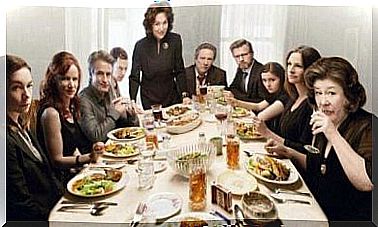How To Get Over The Difference

When a relationship ends, the mourning work usually begins for the people in question. In fact, family members of either party may also experience this grief. Grief plays a role in processing the loss we have experienced in our own lives. Grief work helps us to overcome the difference and adapt to the new situation.
It is a very painful but extremely important process. However, if grief work has not been completed properly, it can lead to strong mental and emotional locks in the individual. Those locks are perpetuated through patterns of behavior such as “mummification”. This means that the individual retains all items belonging to or received as gifts from his or her former partner. Another such pattern of behavior is avoidance, which in turn means breaking all connections that have something to do with the former partner. Neither of these behaviors helps the individual to deal with the difference at an adequate level.
Five steps across the gap
When we want to get over the difference, going through the grief process is almost mandatory for us at first. We must allow ourselves to experience all that emotional upheaval that the various stages of the grief process bring with them: anxiety, fear, rage, grief…
It is quite normal that, first we have to face our loss weepy, then experienced hate that other party, and then to yearn for this … We are human beings who have the ability to experience intense physical pain, but also great mental suffering. We must not refuse to go through that stage on our own. It is important not to oppose that process, because we need it.
However, as has already been mentioned, we are talking about a stage. We shouldn’t get stuck in it, even if over time it starts to feel like a comfort zone. As we experience feelings of evil, people around us will perceive it, and we may receive increased attention and care from them. Everyone likes that feeling. However, grief work needs steps that resemble the process that follows a muscle injury to materialize. First we need to give ourselves time to rest. However, after, as soon as our muscles just allow it, we need to start rehabilitating them. We must do so, no matter how accustomed we may be to our already stuck lives.
It is no longer just a matter of experiencing negative emotions that are consistent with the difference that has taken place. Our minds make an account with the past without giving way to the present or the future.

At this point, the individual’s willpower should rise to the surface. The environment also plays a very important role in this. If you are part of that environment for someone else who is going through the grief process brought about by the difference, it is important to be aware of the importance of the right kind of strategy. Even if you think it’s time for that individual to stand on their own two feet, blaming isn’t the best strategy to motivate him — even though it may seem easiest to you. Also keep in mind that when you want to protect him from facing the “dangers” of reality again, you are also not helping him to process the situation in sufficient depth.
1. Find the following
Relationships are an important source of well-being. They have the ability to unite our souls. Friends, co-workers, family members, and all the people with whom we feel at home have a tremendous power to make the power of negativity in our lives recede. In good company, we make plans, talk, enjoy life, and meet new people. This is guaranteed to open new doors for us.
The club also helps us draw our attention elsewhere. During the separation process, large doses of loneliness and self-examination are very nutrient-rich soils for negative thoughts.
2. Take action
Don’t stop. You may not have the desire to perform all the usual activities. Nevertheless, keep doing them. To stay in this rhythm you just have to get out of bed, take a shower, get dressed and act. Inaction, for its part, also anchors you in negative thoughts. As a result, a vicious circle is created in which negative thoughts and inaction follow one another in an endless cycle.
3. Reject the role of the victim
You have ended the relationship. It is true. However, it is not a very unusual event. Most of us have gone through the same situation at some point in our lives. Mankind has survived such trials even more, re-created its life and found a way back to what happened, despite what happened. Why couldn’t you too? You are no stranger than any other part of the population who have experienced a relationship termination. These people were not helped to stay pitying themselves, branding themselves as “unfortunate” or calling other people “horrible” because of what happened to them.
Despite this adversity we have experienced, the only way forward is to continue our lives. It helps if we equate ourselves with a phoenix. Visualize yourself as a creation that can be reborn from its own ashes. Never think of yourself as a hopeless victim.
4. Appreciate what you have
A romantic relationship is not everything. There are many other important things in life like work, family, hobbies, friends and leisure… Why focus on just one thing you have lost? The ideal would be to go back to this kind of treatment, and instead be grateful for everything you still have.
Write down things you are grateful for in your life each day. You will soon find that in many ways you actually have much more than enough of everything you need. You will also find that a relationship is just one aspect of your life that will come true in its own time. Stop putting so much pressure on yourself for it.

5. Know that you don’t need a partner to be happy
Contrary to what we might think, people actually need very little to be happy. Francis of Assisi stated, “Every day I need fewer things and even those I need, I need very little.” No one needs a romantic relationship to be able to do well, and to an even lesser extent one particular partner.
There are millions of singles in the world living a happy, full life. As long as we are able to do valuable things for ourselves and our environment, we can feel whole and see the purpose of our lives come true.
A life partner is meant to be a positive addition to your life that you choose of your own free will. This choice should not be based on an internal vacuum that you are unable to fill by other means. The attempt to fill that vacuum cannot be called true love. Over time, a relationship built on such a foundation is unlikely to work and will end in resignation.
If you’re going through the divorce process and think you should have gotten over the divorce a long time ago, focus on internalizing those five points outlined earlier. In addition, be sure to reward yourself in the middle of that process. If you find your grief work progressing, congratulate yourself on your accomplishments. The most important thing is that you maintain continuity. Helping yourself over the difference is hard work, but it’s worth all your effort.









